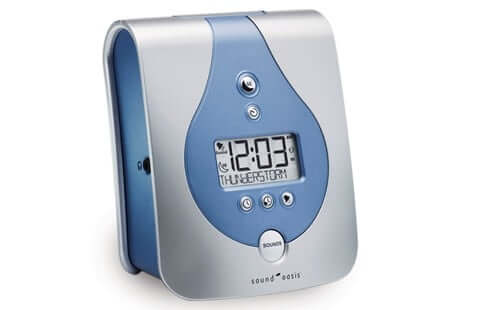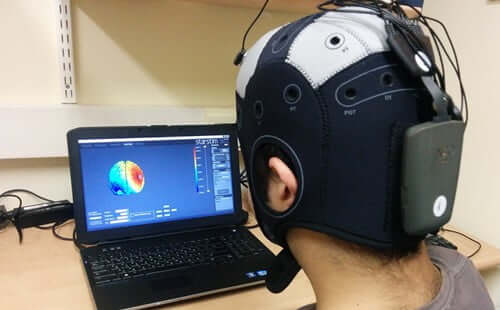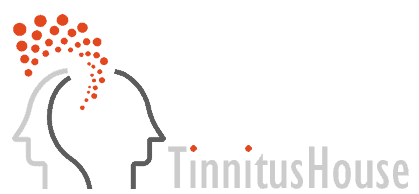
Behandeling van Tinnitus
Is er iets aan tinnitus te doen?
Het antwoord is: ja en nee. Er wordt op de markt van alles tegen tinnitus aangeboden, zoals speciale hoorapparatuur, medicijnen, psychologische therapieën, en zelfs implantaten.
De schokkende werkelijkheid is echter dat al deze oplossingen maar voor een klein percentage van de patiënten daadwerkelijk verlichting bieden. Zij nemen de hinderlijke geluiden doorgaans niet weg, maar leren de patiënt er beter mee om te gaan, ze te negeren.
De hersenen worden als het ware afgeleid, zodat de patiënt er minder aandacht aan besteedt. Op zich is er met al deze methoden niets mis. Het zijn echter symptoombestrijdingen, de oorzaak wordt niet weggenomen.
Acute tinnitus
Als de “piep” of “brom” acuut is ontstaan of als er sprake is van acuut gehoorverlies (pop-concerten zijn beruchte veroorzakers) is het zaak niet te lang met de acute tinnitus door te lopen, maar medisch advies in te winnen. Er zijn experimenten met medicijnen die bij acuut tinnitus voorkomen dat het chronisch wordt. Verder kan acute tinnitus veroorzaakt worden door een ophoping van oorsmeer. Laat niet je oren uitspuiten (dat is een bekende oorzaak van tinnitus) maar netjes met een instrumentje (cerumenhaakje) onder zicht verwijderen.
Chronische tinnitus
Het verloop van chronische tinnitus is onvoorspelbaar. Soms blijven de symptomen gelijk, en soms worden ze in de loop van de tijd erger. In ongeveer 10% van de gevallen beïnvloed tinnitus het dagelijks leven dusdanig, dat professionele hulp nodig is.
Hoe omgaan met tinnitus
Belangrijk is om eerst te bepalen of er sprake is van objectieve of subjectieve tinnitus. Objectieve tinnitus is door een behandelend arts óók te horen en dan kan naar een mogelijke lichamelijke oorzaak gezocht worden, die vervolgens kan leiden tot een mogelijke behandeling.
Subjectieve tinnitus, waarnemen van het geluid zonder dat er een bron daarvan gevonden wordt, komt het meest voor en daarvan is de behandeling lastig. Ondanks dat er geen genezing mogelijk is voor tinnitus, kan het zijn dat men minder last van heeft naar mate de tijd verstrijkt, omdat het minder opvalt of omdat je leert “er mee om te gaan”. Je kunt de symptomen zelf verminderen of vergemakkelijken door jezelf in te lezen over de conditie – bijvoorbeeld zodat je begrijpt dat tinnitus niet gevaarlijk is..
Twee soorten behandelingen
Tinnitusbehandelingen kunnen worden onderverdeeld in twee categorieën: 1) die gericht op het direct verminderen van de intensiteit van tinnitus en 2) die gericht zijn op het verlichten van de hinder geassocieerd met tinnitus. De eerste omvatten farmacotherapie en elektrische onderdrukking,en de laatste omvatten farmacotherapie, cognitief en gedragstherapie, geluidstherapie en gewenningstherapie. Geen enkele aanpak werkt voor iedereen, en het kan zijn dat je verschillende dingen moet uitproberen voor je iets hebt gevonden dat werkt voor jou. Als je leeftijdsgerelateerd gehoorverlies hebt, kan een gehoorapparaat vaak zorgen dat de tinnitus minder opvalt, door geluiden ‘van buiten’ harder te maken
Medicijnen

Bij objectieve tinnitus (die ook een ander kan horen) is het mogelijk medicijnen voor te schrijven die de onderliggende oorzaak wegnemen (verhoogde bloeddruk, Menière, onstoken Buis van Eustachius etc). De medicamenteuze behandeling van subjectieve Tinnitus komt veelal neer op het verminderen van de door tinnitus veroorzaakte stress .
Maskeren

Er zijn apparaatjes, bedoeld om op een laag niveau witte ruis te produceren. Dit leidt ertoe dat tinnitus minder wordt waargenomen. Soms blijft dit effect zelfs voortduren nadat het apparaatje is uitgezet, al is het maar voor korte tijd. Dit staat bekend als Akoestische Neuromodulatie Therapie. Maar het hoeft niet altijd een gespecialiseerd apparaat te zijn – muziek luisteren, een radio aanzetten , een ventilator aanzetten of witte ruis op de achtergrond draaien kan ook al helpen. Als je een hoorapparaat draagt, kun je kijken of die te programmeren is of een maskerend geluid te produceren.
Biofeedback

Tinnitus zorgt voor stress, en stress kan op zijn beurt de tinnitus weer erger maken. Biofeedback is een ontspannings techniek die helpt je stress te controleren door je lichamelijke responsen te veranderen. Elektroden die aan de huid worden bevestigd geven informatie over lichamelijke processen zoals hartslag, lichaamstemperatuur en spierspanning. Deze output wordt vervolgens getoond op een scherm en patiënten leren deze stressresponsen te veranderen door hun gedachten en gevoelens aan te passen.
CGT

CGT (cognitieve gedragstherapie) gebruikt cognitieve herstructurering gecombineerd met relaxatie om de manier waarop patiënten denken over tinnitus om te buigen. Patiënten houden meestal een dagboek bij en voeren huiswerk uit om meer vaardigheden op te bouwen om om te gaan met tinnitus. Therapie is vaak kortdurend – bijvoorbeeld wekelijkse sessies gedurende 2-6 maanden. Een groot onderzoek wees uit dat het geluid niet minder was geworden na gedragstherapie, maar dat patiënten er significant minder last van hadden en dat de kwaliteit van leven flink was verbeterd
TRT

TRT (Tinnitus Retraining Therapie) is gebaseerd op de aanname dat tinnitus voortkomt uit abnormale neurale activiteit. Het doel is om het auditieve systeem te laten wennen aan de tinnitus geluiden, waardoor ze minder opvallen of men er minder last van heeft. TRT bestaat uit individuele therapie waarin alles wordt uitgelegd over het auditieve systeem en hoe tinnitus ontstaat. Ook bevat deze aanpak geluidstherapie. Een apparaatje wordt in het oor geplaatst en dit genereert een laag geluid en omgevingsgeluiden die matchen bij het geluidsniveau van de tinnitus.
Neuromodulatie

De grootste groep patienten met Tinnitus is die waarvan de oorzaak gezocht moet worden in het gehoorverlies. De hersenen “vullen” als het ware de verloren gegane frequenties aan en creeëren zo een “fantoom-geluid” . Het is dan niet verwonderlijk dat er ook gezocht wordt naar mogelijkheden om de hersenen te vertellen dat niet meer te doen. Drie belangrijke onderzoeken zijn:
- rTMS: repetitieve Transcraniële Magnetische Stimulatie waarbij bepaalde hersendelen worden gestimuleerd door het plaatsten van elektromagneten op de schedel
- TDCS: Transcraniale Direct Current Stimulation
- NVS: Nervus Vagus Stimulatie
Pas op voor kwakzalverij

Vooral op het internet wordt een breed scala aan mogelijke remedies tegen Tinnitus aangeboden. Hoewel veelal geen wetenschappelijk onderbouwde werking bestaat, zijn er toch patienten die er baat bij vinden al wordt algemeen gedacht dat dit op het placebo effect berust. Er zijn verder laserapparaten tot aan nervus-vagus-stimulatoren op de markt, waarvan sommige ronduit gevaarlijk genoemd kunnen worden.
Let op! Nog géén enkele van deze behandelingen wordt aanbevolen in de “Richtlijn Tinnitus” van de Nederlandse Vereniging voor Keel –Neus –Oorheelkunde. Ook worden deze behandelingen zelden vergoed door de ziektekostenverzekeraars.
